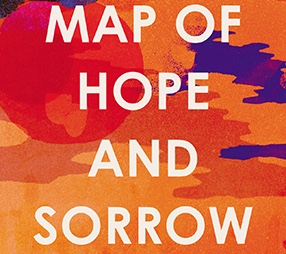Map of Hope and Sorrow: Stories of Refugees Trapped in Greece, Helen Benedict & Eyad Awwadawnan
Footnote Press, 2022, 328 pages
Helen Benedict is a well-known journalist, academic, novelist and non-fiction writer, often writing on themes of war and violence against women. She and her Syrian co-author and translator Eyad Awwadawnan focus here on the stories of five refugees — painfully traversing Syria, Nigeria, Cameroon or Afghanistan — to Europe, which should be a place of sanctuary but increasingly is not. One of the refugees included is a gay man from Nigeria, and we are reminded that moving to an adjacent country is no solution, where there’s policy interdependence between governments, or religious taboos. The Greek islands of Samos and Lesbos are where most of these refugees found themselves, before being interviewed by the authors multiple times between 2018 and 2021, in person or by phone.
The purpose of Benedict’s latter visit was a post-election update on the New Democracy government’s version of “protection”: to deport 10,000 current asylum seekers, and end government support to successful applicants after one month. The reports in this book suggest this is welcomed nowadays by much of the island residents. In June 2023, the death of around 630 refugees on one ship off Greece received little concern, locally or internationally, suggesting awfulness is becoming normalised. (In a different context, the “meatgrinder” description of Russian military tactics in the war in Ukraine has been commented on recently: a large number of deaths of new and unskilled recruits as an acceptable state action. Is this mindset also coming to the refugee issue?)
The book’s first person whole-of-life accounts go beyond the refugee experience, and include much about family and upbringing, religion and politics. A purging of emotions by the voiceless and suffering is to be expected, which makes for uncomfortable reading — of deaths, interpersonal conflicts and intense suffering, the buildup to the wars and oppression they fled from, the dangerous and unknown routes of escape, the casual violence and abuse of power by people smugglers and authorities — and much of this occurs after they arrive in Samos. For readers seeking holistic personal stories — more oral histories than testimonies — you may like to know it won the 2021 PEN/Jean Stein Grants for Literary Oral History.
The bibliography lists other refugee stories and literature mainly from Syria, but also Morocco, Afghanistan, Iraq, Somalia, Cambodia, Iran and other countries. And there is beauty: the authors have a music playlist personalised to accompany the individual stories or themes in the book. In their words: “We think these songs are all beautiful in their own right, but they are even more powerful when you know the stories behind them.”
Helen Benedict’s background on the colonial and recent history of each refugee’s country is very useful to put the personal stories in context. She also reports many official practices outside the Refugee Convention rules e.g. three months’ imprisonment for anyone who came from a country with a less than 25% acceptance rate for asylum, which later became 70% incarceration for new people, irrespective of country of origin. Also the testing of “sound cannons”, which can emit a noise as loud as a jet engine, to be aimed at asylum seekers trying to cross from Turkey to Greece by land, is mooted. In response to the EU, the authors have seventeen recommendations on how to help. Much more, including videos and links, can be found at the book’s website.
Kevin Bain is a retired economic analyst and university teacher. His Refugee Reading Guide is at Bayside Refugee Support. It has short summaries of about 100 books published over the last 20 years.
